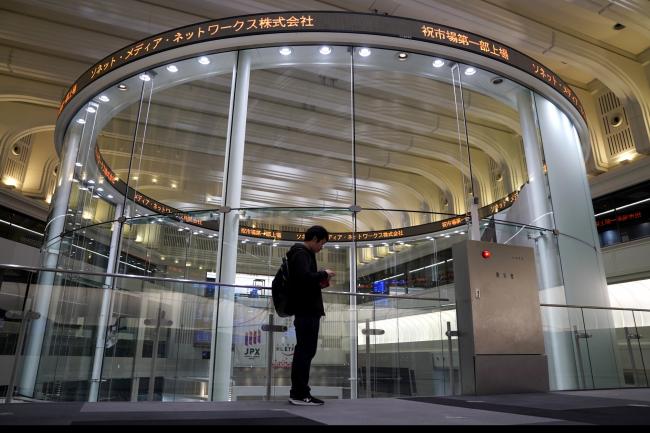(Bloomberg) -- There’s still time for a few trades this week before markets are shuttered and Japan’s investors head off for an extended Golden Week holiday. Yet you would hardly know it based on the drop in trading activity already.
Tokyo’s benchmark Topix Index hasn’t seen a one percentage point or more move in seven trading days, and daily volumes were less than 1 billion shares from Friday through Tuesday. That’s the longest such stretch of low volumes since December 2017. As traders await the Bank of Japan meeting Thursday, with one eye on the Narita Express, it remains to be seen how volumes will fare for the rest of the week.
The mixed results come as some of the steam goes out of the wider Asian rally after a hot start to 2019. While the MSCI Asia Pacific Index is up 11 percent for the year, the bulk of that gain was in January.
Optimism over a U.S.-China trade deal and the Federal Reserve’s dovish pivot has had to contend with increasing concerns about a global economic slowdown and recent strength in the dollar. The yen has declined over 2 percent this year.
With the BOJ expected to maintain its key rate today, there’s little impetus for traders in Japan to make any outsized wagers ahead of a 10-day holiday that will leave them out of the domestic market until May 7, while the nation celebrates the transition to a new emperor and the start of the Reiwa era.
Read more: Japan Dubs Next Emperor’s Reign Reiwa Era, or ‘Auspicious Calm’
For traders, there will be plenty of opportunities to invest once the new era dawns, as work begun during the Heisei era on longstanding issues such as corporate governance reform will continue, said Takashi Maruyama, chief investment officer of Fidelity International in Japan.
“While more companies have increased shareholder returns through steps such as higher dividends and share repurchases, there is still room for improvement,” he said in a note to clients.
Resolution on the issue of the longstanding practice of cross-shareholdings in particular is expected to come in the new era as companies improve their governance practices, he said. As cross-shareholdings diminish, corporate discipline will increase and efficiency will improve, “which should lead to higher profitability,” he added.
“The Japanese economy is facing challenges, including an aging population and the eventual exit from easy monetary policy, Maruyama said. “But the market will recognize and reward Japanese companies that improve their management, shareholder returns and asset efficiency.”
